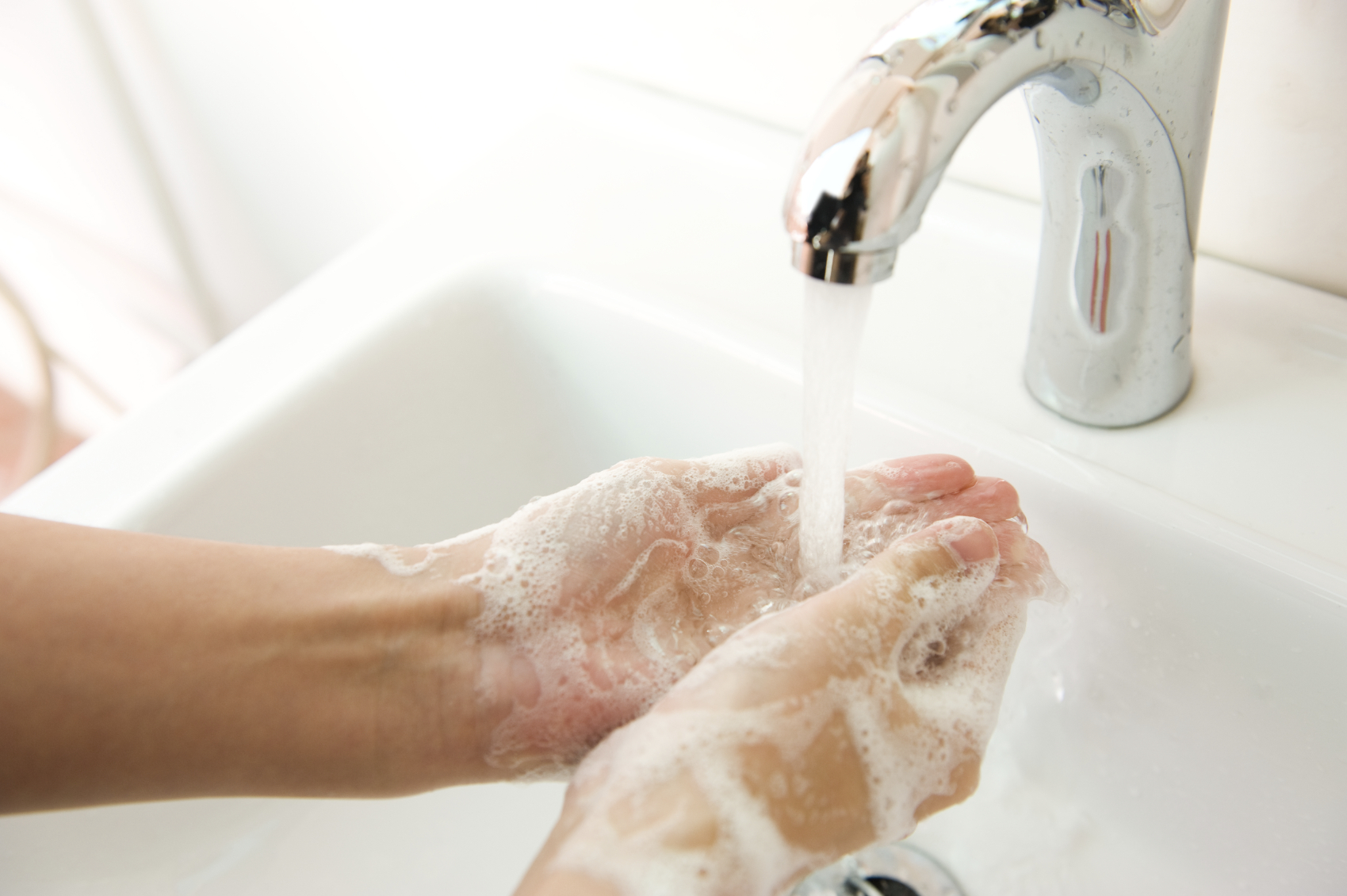The end of soap?
"Despite all our efforts, we haven't been able to change the behavior of people to wash their hands properly. So if we can't change the behavior, we change the water."


A free daily email with the biggest news stories of the day – and the best features from TheWeek.com
You are now subscribed
Your newsletter sign-up was successful
Conventional wisdom says that if you want clean hands, you have to wash with soap and water. For best results, the water should be warm, and you should get a good sudsy lather worked up before rinsing.
The problem with this method is it doesn't always get rid of the germs. And it relies on the assumption that soap is available, which isn't always the case.
A new invention has the potential to eliminate the need for soap entirely. The StarStream was created by professor Tim Leighton and Dr. Peter Birkin at the University of Southampton and creates water that's been supercharged with ultrasonic bubbles to scrub surfaces clean. The water gets pumped through a special patented nozzle that emits bubbles along with a sound field, causing the bubbles to oscillate, essentially turning them into microscopic scrubbers. "Just like that, regular water is imbued with cleaning power you've only ever heard advertised on late-night infomercials," exclaims Chloe Olewitz at Yahoo Finance.
The Week
Escape your echo chamber. Get the facts behind the news, plus analysis from multiple perspectives.

Sign up for The Week's Free Newsletters
From our morning news briefing to a weekly Good News Newsletter, get the best of The Week delivered directly to your inbox.
From our morning news briefing to a weekly Good News Newsletter, get the best of The Week delivered directly to your inbox.
Here's the StarStream working its magic on hands stained with marker:
"So these gas bubbles underwater … normally just sit there spherically underwater," Leighton told Reuters. "But if you hit them with a sound field you can make their surfaces ripple. And you get such high sheer and rubbing along the surfaces of these ripples that it can clean very effectively."
In demonstrations, the StarStream removes all kinds of stains, including lipstick and peanut butter, from everyday surfaces. But the tool could have a real impact on medical and surgical fields. It's been shown to remove biological contaminants — from dental bacteria to brain material — from various surfaces, including surgical steel. "Starstream is particularly effective at cleaning out any grooves and cracks in the surfaces, areas that are difficult to reach for conventional cleaning technologies," the StarStream website boasts. The handheld nozzle, which looks like a cross between a hairdryer and a glue gun, uses less power and water than other cleaning systems, so in addition to reducing toxic runoff by operating without cleaning agents, the StarStream could also save money and resources.
Other ultrasonic cleaners already exist, but are too harsh for use on delicate materials like human skin. The StarStream comes with both high-power and low-power settings, so it can be used on sturdy equipment like medical tools, and fragile objects, including food. One video clip even shows the tool removing dirt and other gunk from a head of lettuce without damaging the leaves:
A free daily email with the biggest news stories of the day – and the best features from TheWeek.com
According to its creators, six seconds of washing under cold water with StarStream is just as effective at removing contaminants as 20 seconds of scrubbing with warm soapy water.
"Despite all our efforts, we haven't been able to change the behavior of people to wash their hands properly," says Leighton. "So if we can't change the behavior, we change the water."
The creators of the StarStream see it having the biggest impact on health and medical fields. Indeed, such a tool, if installed in the sinks of hospitals and doctors' offices, could be a great way to cut down on the growing superbug epidemic. Antibiotic resistance killed at least 23,000 people in 2013, according to the CDC, and caused more than 2 million illnesses.
"If you can clean effectively, as we're doing here, then you can stop the bugs ever entering the body," said Leighton. "And if the bugs never enter the body the person doesn't get an infection and you don't have to use these antibiotics, anti-microbial agents. And you've got a whole different pathway for tackling this anti-microbial resistance catastrophe."
The StarStream is being produced by a company called Ultrawave Ltd., but is looking for additional investment to further develop the technology.
Jessica Hullinger is a writer and former deputy editor of The Week Digital. Originally from the American Midwest, she completed a degree in journalism at Indiana University Bloomington before relocating to New York City, where she pursued a career in media. After joining The Week as an intern in 2010, she served as the title’s audience development manager, senior editor and deputy editor, as well as a regular guest on “The Week Unwrapped” podcast. Her writing has featured in other publications including Popular Science, Fast Company, Fortune, and Self magazine, and she loves covering science and climate-related issues.
-
 How to Get to Heaven from Belfast: a ‘highly entertaining ride’
How to Get to Heaven from Belfast: a ‘highly entertaining ride’The Week Recommends Mystery-comedy from the creator of Derry Girls should be ‘your new binge-watch’
-
 The 8 best TV shows of the 1960s
The 8 best TV shows of the 1960sThe standout shows of this decade take viewers from outer space to the Wild West
-
 Microdramas are booming
Microdramas are boomingUnder the radar Scroll to watch a whole movie
